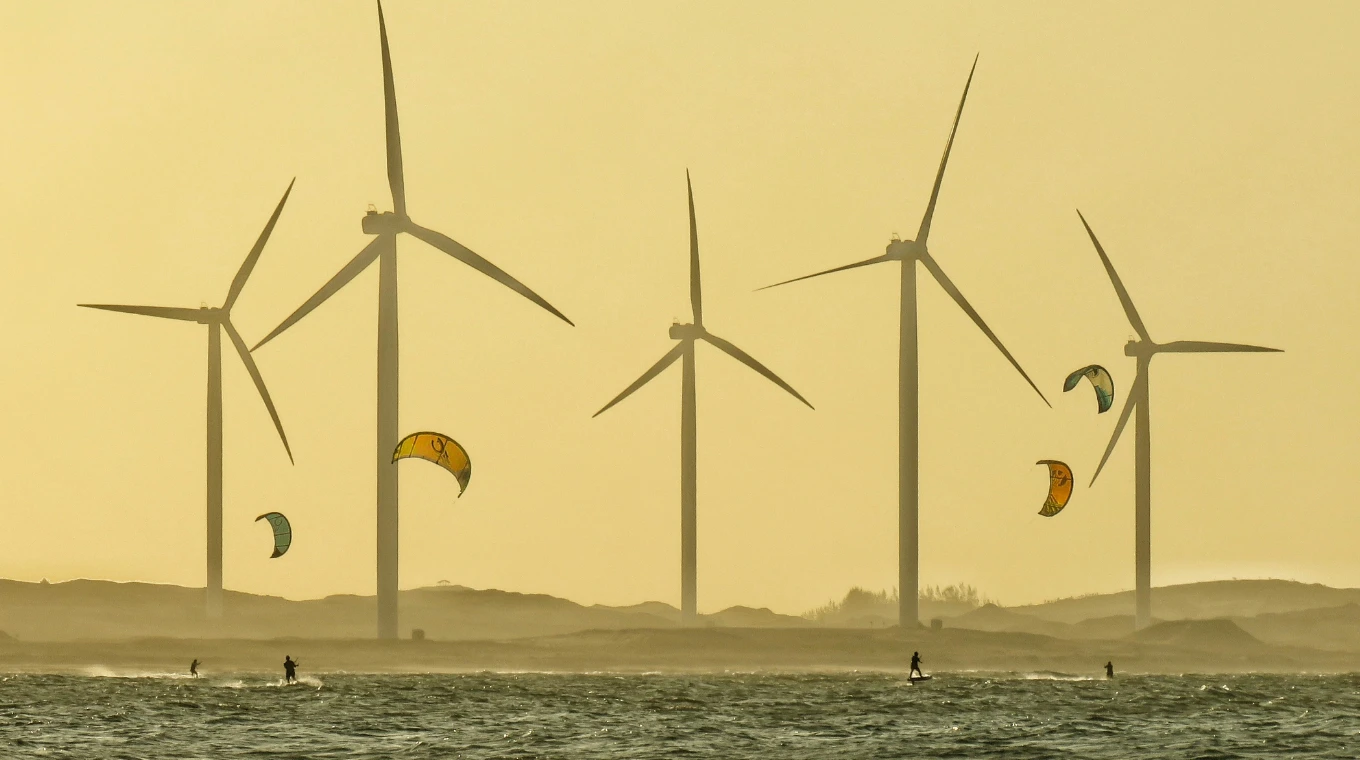Circular Economy in the GCC: Status, Challenges, and Opportunities
The article discusses the status, challenges, and opportunities of implementing a circular economy in the Gulf Cooperation Council (GCC) region, highlighting its potential to promote sustainable resource use and economic diversification.
Circular Economy: Global Context and Definition
Circular economy is a sustainable economic model focused on resource efficiency and waste reduction.
- Circular economy promotes a zero-waste approach, extending the lifespan and economic value of resources.
- It encourages the design of long-lasting, easy-to-repair products and services offered as a service rather than ownership.
- Circular economy practices can lead to reduced consumption, increased recycling, and the development of new income streams.
- Global examples of CE initiatives include Slovenia's Urban Soil for Food project and Japan's Regional Circulating and Ecological Sphere
Circular Economy in the GCC Region
The GCC region faces significant environmental challenges due to rapid economic growth and resource depletion, necessitating a shift to a circular economy.
- The GCC population reached 58.86 million in 2022, with 84% living in urban areas, leading to unsustainable consumption patterns.
- GCC countries are transitioning from hydrocarbon dependency to sustainable economic models to address environmental challenges.
- The circular economy can support economic diversification and promote resource efficiency, particularly in water and land use.
- GCC countries are exploring new circular sectors, including waste management and advanced recycling processes.
Contribution of Circular Economy to Clean Energy Transition
The circular economy can significantly reduce greenhouse gas emissions and enhance sustainability in key sectors like transportation and construction.
- These sectors contribute 30% of global GHG emissions, making green strategies essential for the GCC.
- CE practices can lead to recycling and remanufacturing, reducing the need for raw materials and lowering emissions.
- The challenge of plastic waste highlights the need for innovative recycling technologies and sustainable disposal methods.
Case Studies of Circular Economy in GCC Countries
Various GCC countries have initiated specific strategies and policies to promote circular economy practices.
- United Arab Emirates (UAE): Launched the UAE National Agenda and Vision, focusing on sustainable development and green growth, with a Circular Economy Policy introduced in 2021.
- Saudi Arabia (KSA): Vision 2030 aims to diversify the economy and enhance waste management efficiency, with a National Waste Management Strategy targeting an 82% diversion rate from landfills by 2030.
- Qatar: Qatar National Vision 2030 promotes sustainable development, with initiatives like electric vehicle targets and smart urban projects.
- Oman: Vision 2040 emphasizes a sustainable economy and energy efficiency, supported by the Oman Energy Master Plan 2040.
- Bahrain: Economic Vision 2030 focuses on sustainability and green financing, with a target of 10% renewable energy by 2035.
- Kuwait: Vision 2035 aims to develop a sustainable economy, promoting renewable energy and circular economy principles in urban planning.
Summary of GCC Initiatives Towards Sustainable Economy
GCC countries have established various visions and strategies to promote sustainability and circular economy practices.
- UAE's Vision 2021 and Green Economy initiatives aim for economic diversification and resilience.
- Qatar's National Vision 2030 focuses on harmonizing economic growth with environmental protection.
- Oman's Vision 2040 seeks to reduce oil dependency and promote a sustainable economy.
- Bahrain's Economic Vision emphasizes sustainability, fairness, and competitiveness.
- Saudi Arabia's Vision 2030 targets a transition to a sustainable economy away from oil reliance.
- Kuwait's Vision 2035 aims to establish a sustainable economy through renewable energy and urban planning reforms.
National Policies Promoting Circular Economy in GCC
- GCC countries have established various national policies to enhance circularity in key sectors.
- Qatar's National Vision 2030 integrates UN Sustainable Development goals into its National Development Strategy (2018-2022).
- UAE's Vision 2021 and subsequent plans focus on transitioning to a circular economy, with specific targets for CO2 emissions reduction and water reuse.
- Saudi Arabia introduced the concept of a circular carbon economy in 2020 during its G20 presidency.
- Oman is regulating waste streams to support circular economy initiatives as of 2021.
Circular Economy Initiatives in GCC Sectors
- Numerous initiatives are underway in the GCC to promote circularity across four main sectors.
- Oil & Gas: High potential for resource efficiency and circular sourcing.
- Chemicals: Emphasis on sustainable design and recycling from consumption.
- Power & Utilities: Focus on circular sourcing and resource efficiency.
- Metals & Mining: Strong potential for recycling and industrial symbiosis.
Experience of North African Countries in Circular Economy
North African countries are implementing various strategies to support circular economy practices.
- Egypt's Sustainable Development Strategy 2030 and other policies indirectly endorse circular economy activities.
- Jordan's Sustainable Consumption and Production National Action Plan emphasizes green economic growth and waste management.
- Lebanon's environmental laws promote sustainable practices and recycling initiatives.
- Tunisia has developed action plans for sustainable practices in agriculture and tourism sectors.
Challenges in Transitioning to Circular Economy in GCC
GCC countries face significant challenges in adopting circular economy practices.
- Viable business cases for circular economy programs are often lacking.
- Existing regulations may hinder eco-innovative developments.
- There is a shortage of knowledge and skills necessary for circular economy strategies.
- The financial sector is conservative regarding investments in circular economy projects.
Opportunities for Circular Economy in GCC
The GCC region presents numerous opportunities for advancing a circular economy, particularly in construction and energy.
- The construction sector can optimize material use and incorporate sustainable designs.
- Energy-intensive industries can benefit from carbon capture and storage technologies.
- Collaboration with regions like the EU can enhance circular economy practices through shared best practices.
Recommendations for Fostering Circular Economy Development
To promote circular economy development, GCC countries should adopt inclusive strategies and partnerships.
- Collaborate with regional organizations for better environmental performance.
- Engage financial institutions to support climate and development priorities.
- Strengthen partnerships with various stakeholders for effective climate action.
- Focus on sustainable finance to facilitate climate-smart investments.
Conclusion on Circular Economy Transition
Transitioning to a circular economy in the GCC can yield significant economic and environmental benefits.
- A circular economy could increase GDP by approximately USD 100 billion and create 200,000 to 300,000 jobs.
- High recycling targets are set for various materials, aiming for 95% collection rates by 2040.
- The transition supports long-term economic growth while ensuring environmental sustainability.
Azhan Hasan advises governments and organisations on climate strategy, sustainable infrastructure, and environmental governance. With over 23 years of experience, he helps clients turn sustainability goals into measurable outcomes.
He has worked with the Solar Impulse Foundation, Turner & Townsend, and Qatar’s Ministry of Environment, guiding projects on climate policy, net-zero planning, and circular-economy integration. His approach combines systems thinking with practical implementation, aligning climate action with long-term business and policy objectives.
Azhan holds a Master’s in Policy and Administration from Reitaku University (Japan), an Executive Diploma in Engineering Business Management from Universiti Teknologi Malaysia, and a BEc (Hons) from Universiti Utara Malaysia. He also served as a Research Fellow in Environmental Policy and Governance at Freie Universität Berlin.
Azhan Hasan
Advisor in Climate Change and Sustainability | Malaysia


